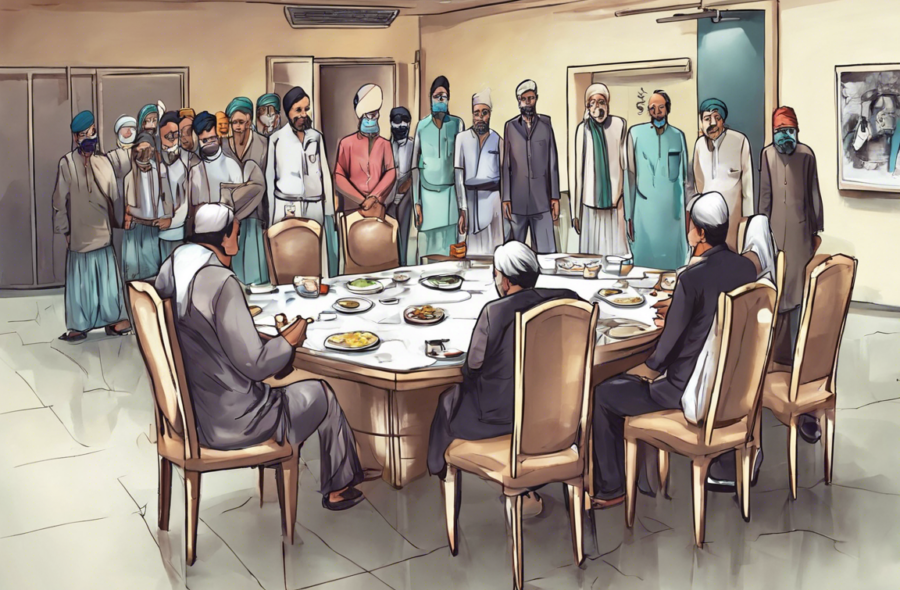Diwali, the festival of lights, holds immense significance in the hearts and minds of people across India and in various parts of the world. Celebrated in the Hindu lunisolar month of Kartika, which typically falls in October or November, Diwali is a time of family gatherings, festive decorations, and most importantly, the triumph of light over darkness, good over evil, and knowledge over ignorance. This festival spans over five days, with each day holding its own unique importance and customs.
1. Dhanteras:
The first day of Diwali festivities is known as Dhanteras, which is celebrated on the thirteenth lunar day of Krishna Paksha in the Hindu month of Ashwin. Dhanteras is dedicated to the worship of Lord Dhanvantari, the God of Ayurveda, and also marks the auspicious occasion for purchasing gold, silver, utensils, or other valuable items.
2. Naraka Chaturdashi/Choti Diwali:
The second day of Diwali is known as Naraka Chaturdashi or Choti Diwali. It commemorates the victory of Lord Krishna over the demon king Narakasura. This day is observed by taking an early morning bath, applying oil on the body, and offering prayers to Lord Krishna.
3. Diwali/Lakshmi Puja:
The third day of Diwali is the main day of celebrations when people clean their homes, decorate them with colorful rangoli designs, light diyas and candles, and perform Lakshmi Puja in honor of the Goddess of Wealth. It is believed that Goddess Lakshmi visits homes that are clean and well-lit.
4. Govardhan Puja/Padwa:
The fourth day of Diwali is known as Govardhan Puja or Annakut. This day celebrates the lifting of Mount Govardhan by Lord Krishna to protect the villagers from torrential rains. Devotees prepare a variety of sweets and offer them to the deities.
5. Bhai Dooj:
The fifth and final day of Diwali is known as Bhai Dooj or Bhai Tika, which celebrates the special bond between brothers and sisters. Sisters pray for their brothers’ long life and happiness, while brothers vow to protect and care for their sisters.
Significance of Diwali:
Diwali holds great significance across various aspects of life including spiritual, cultural, and social. It symbolizes the victory of light over darkness and good over evil. It is a time for introspection, self-improvement, and fostering good relationships with others. The lighting of diyas symbolizes the removal of ignorance and the awakening of knowledge.
Celebrations Around the World:
While Diwali is predominantly celebrated in India, its festivities have spread to many other parts of the world due to the Indian diaspora. Countries such as Nepal, Sri Lanka, Malaysia, Singapore, the United Kingdom, the United States, Canada, and Australia also host grand Diwali celebrations with fireworks, traditional performances, and cultural events.
Eco-Friendly Diwali:
In recent years, there has been a growing awareness about the environmental impact of fireworks and excessive lighting during Diwali. Many people are now opting for eco-friendly celebrations by using clay diyas, decorating with natural materials, and minimizing the use of fireworks to reduce air and noise pollution.
FAQs:
1. What is the significance of lighting diyas during Diwali?
Lighting diyas during Diwali symbolizes the victory of light over darkness and the dispelling of ignorance. It is believed to bring positivity, prosperity, and happiness into the home.
2. What are some traditional sweets prepared during Diwali?
Popular Diwali sweets include ladoos, barfis, gujiyas, jalebis, and kheer. These sweet treats are exchanged among family members and friends as a symbol of love and goodwill.
3. How is Diwali celebrated in different regions of India?
Diwali is celebrated with various customs and traditions across India. In North India, people worship Goddess Lakshmi and Lord Ganesha, while in South India, it is a day to honor Lord Krishna. In the West, it marks the return of Lord Rama to Ayodhya after defeating Ravana.
4. Why is rangoli made during Diwali?
Rangoli is a colorful design made on the floor near the entrance of homes during Diwali to welcome Goddess Lakshmi and bring good luck. It is also considered a form of decoration and artistry.
5. How can one ensure a safe Diwali celebration for pets?
Pets can be sensitive to loud noises and bright lights during Diwali. It is recommended to keep them indoors, create a safe and quiet space for them, and avoid using fireworks in residential areas to ensure a stress-free celebration for pets.
As the festival of Diwali approaches, let us all come together to celebrate the triumph of light, love, and prosperity. May this Diwali bring joy, peace, and prosperity to all and serve as a reminder of the eternal values of truth, righteousness, and compassion.

